- #ShiftThePower for Health Equity
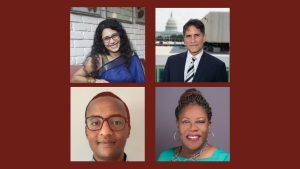 A major theme at the 2022 Global Health Council’s Landscape Symposium has been health equity. We in MCLD believe that the only way to ensure people’s right to health is to ensure they have the collective voice to demand it. We organized a concurrent session at the symposium to address the question — now that… Read more: #ShiftThePower for Health Equity
A major theme at the 2022 Global Health Council’s Landscape Symposium has been health equity. We in MCLD believe that the only way to ensure people’s right to health is to ensure they have the collective voice to demand it. We organized a concurrent session at the symposium to address the question — now that… Read more: #ShiftThePower for Health Equity - Ending Hunger and CLD
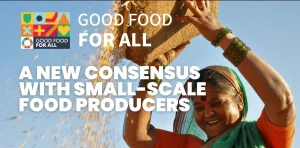 On May 25, 2022 the Movement for Community-led Development discussed our role in ending world hunger. This call leads up to the World Hunger Day social media campaign on May 28. The Hunger Project recently conducted a comprehensive literature review on the causal links between CLD and ending hunger. We encourage you to review the… Read more: Ending Hunger and CLD
On May 25, 2022 the Movement for Community-led Development discussed our role in ending world hunger. This call leads up to the World Hunger Day social media campaign on May 28. The Hunger Project recently conducted a comprehensive literature review on the causal links between CLD and ending hunger. We encourage you to review the… Read more: Ending Hunger and CLD - Ending Hunger and Community-Led Development: What are the causal links?
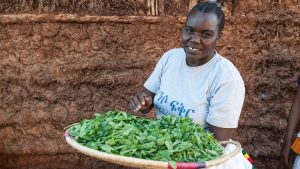 Ending hunger is not just about food. It requires the convergence of multiple nutrition specific and nutrition sensitive interventions at the community level.
Ending hunger is not just about food. It requires the convergence of multiple nutrition specific and nutrition sensitive interventions at the community level. - Health for All Advocacy Toolkit
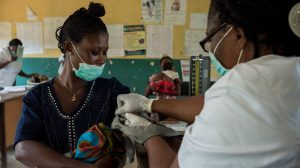 The Health for All Advocacy Toolkit provides national-level civil society organizations (CSOs) and health networks with the necessary resources to kick-start advocacy initiatives on universal health coverage (UHC). It offers advocates a central reference point—a ‘one-stop shop’ for key information and tools to advocate for UHC, hold policy-makers accountable for their commitments, and build a broad social… Read more: Health for All Advocacy Toolkit
The Health for All Advocacy Toolkit provides national-level civil society organizations (CSOs) and health networks with the necessary resources to kick-start advocacy initiatives on universal health coverage (UHC). It offers advocates a central reference point—a ‘one-stop shop’ for key information and tools to advocate for UHC, hold policy-makers accountable for their commitments, and build a broad social… Read more: Health for All Advocacy Toolkit - Citizen Engagement in Global Health
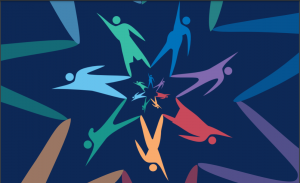 In the 2030 Agenda established in 2015, the world community set bold commitments to “To ensure healthy lives and promote well-being for all at all ages.” (Sustainable Development Goal #3). It followed this up in 2019 with a commitment to Universal Health Coverage (UHC). In the UN System’s Global Action Plan, one of the seven… Read more: Citizen Engagement in Global Health
In the 2030 Agenda established in 2015, the world community set bold commitments to “To ensure healthy lives and promote well-being for all at all ages.” (Sustainable Development Goal #3). It followed this up in 2019 with a commitment to Universal Health Coverage (UHC). In the UN System’s Global Action Plan, one of the seven… Read more: Citizen Engagement in Global Health - Strengthening Community-Led Health Systems
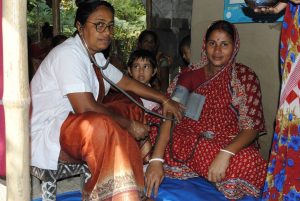 On September 28, 2021, The Movement for Community-Led Development (MCLD) in partnership with the Canadian Partnership for Women and Children’s Health (CANWACH), organized a special dialogue on Strengthening Community-Led Development Health Systems. This was part of an ongoing series of Sector Dialogues being organized by MCLD in order to engage with sector experts to promote… Read more: Strengthening Community-Led Health Systems
On September 28, 2021, The Movement for Community-Led Development (MCLD) in partnership with the Canadian Partnership for Women and Children’s Health (CANWACH), organized a special dialogue on Strengthening Community-Led Development Health Systems. This was part of an ongoing series of Sector Dialogues being organized by MCLD in order to engage with sector experts to promote… Read more: Strengthening Community-Led Health Systems - COVID-19 Vaccine Rollout
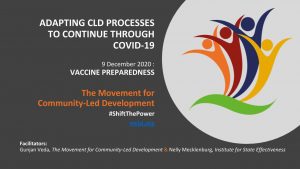 Adapting CLD Processes to Continue Through COVID-19: Vaccine Preparedness December 9, 2020 The ninth global CLD and Covid-19 call hosted by the Movement for Community Led Development (MCLD) brought together MCLD members and experts from global health and civil society organizations to discuss the development of COVID-19 vaccines and the role of community organizations in… Read more: COVID-19 Vaccine Rollout
Adapting CLD Processes to Continue Through COVID-19: Vaccine Preparedness December 9, 2020 The ninth global CLD and Covid-19 call hosted by the Movement for Community Led Development (MCLD) brought together MCLD members and experts from global health and civil society organizations to discuss the development of COVID-19 vaccines and the role of community organizations in… Read more: COVID-19 Vaccine Rollout - Community Action for Nutrition
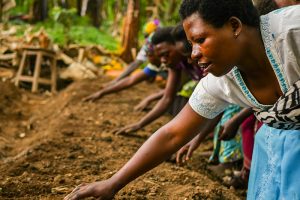 November 24, 2020: What are the linkages between community-led development, nutritional health, and local resilience? And how has the COVID era highlighted the urgent need for all three? An MCLD sponsored event offered practical insights to these questions and more through presentations from Nuru Nigeria, Gardens for Health in Rwanda, and Uganda’s Food Rights Alliance,… Read more: Community Action for Nutrition
November 24, 2020: What are the linkages between community-led development, nutritional health, and local resilience? And how has the COVID era highlighted the urgent need for all three? An MCLD sponsored event offered practical insights to these questions and more through presentations from Nuru Nigeria, Gardens for Health in Rwanda, and Uganda’s Food Rights Alliance,… Read more: Community Action for Nutrition - Community is key to Universal Health Coverage (UHC)
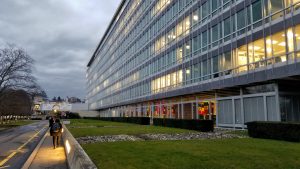 Top 10 Recommendations of the Movement for Community-led Development to the World Health Organization Executive Board, February 2020. Everyone wants a healthy life for themselves and their families. To achieve this, people must have affordable and accountable access to quality health care and disease prevention, as well as information that they trust on the social… Read more: Community is key to Universal Health Coverage (UHC)
Top 10 Recommendations of the Movement for Community-led Development to the World Health Organization Executive Board, February 2020. Everyone wants a healthy life for themselves and their families. To achieve this, people must have affordable and accountable access to quality health care and disease prevention, as well as information that they trust on the social… Read more: Community is key to Universal Health Coverage (UHC) - The role of Community Health Workers in the heart of crisisThe average length of conflict-induced displacement is 17 years, which means communities in displaced situations require support that are not just effective in the short-term but will pave a path towards resiliency for the long-term. Entering the humanitarian space, as FHI 360 does, with a robust development background can offer new insights for how to approach humanitarian problems. We are combining methods which hold the possibility of bringing sustainable solutions to traditional humanitarian delivery models that usually tackle problems with emergency in mind.


